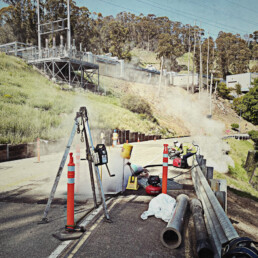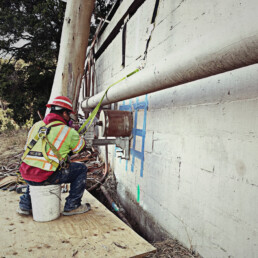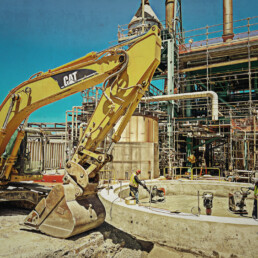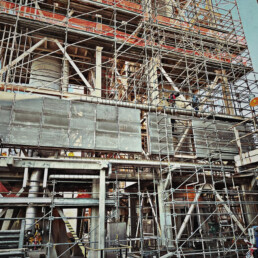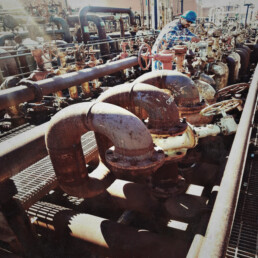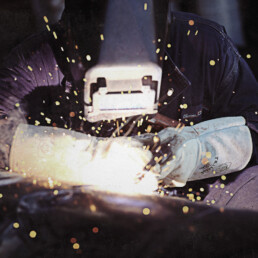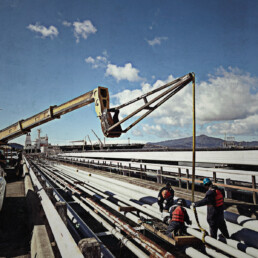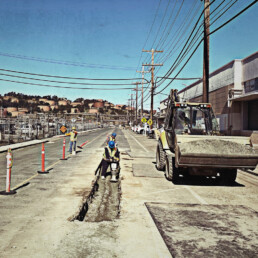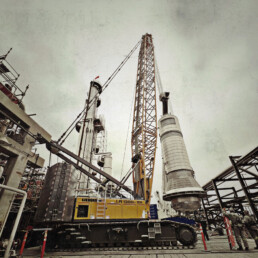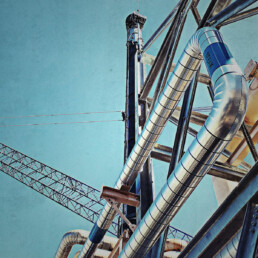Firewater Line Replacement
CHEVRON REFINERY
Project Value: $1.2 Million
Background
The Firewater Line replacement program was a complex project involving civil and mechanical scopes. The project included the replacement of the existing line, which required extensive excavation, sand backfill, and paving.
Scope
- Project management: set-up, and mobilization.
- Material procurement as shown in specifications and contractor workbook
- Fire-watches
- Traffic control
- Excavation, sand backfill, and paving
- Trench plates
- Layout and weld-bay piping prefabrication
- Field piping fabrication, hydro-testing, installation, and tie-ins
- Coat and wrap underground CS piping and flanges
- Guard post installation
- QAQC and document submittals
- Clean-up and demobilization
Project Highlights
- Completed 150 carbon steel welds
- Completed 76 HDPE fusion welds
- Installed 475LF of HDPE pipe
- Excavated 270 cu yd of material
- Imported 250 tons of clean rock fill, 110 tons of sand fill and 150 tons of aggregate base rock
- Import level and compact 60 tons of asphaltic concrete paving
- Coordinated excavation and mechanical scope to limit the risk of open dig sites
Challenges & Solutions
The firewater line project required being set underneath an operational street. Due to the activity of the street, it needed to be open for traffic during non-construction hours.
During the project, we encountered multiple subsurface obstructions. There was also a high-water table that could affect the excavation and installation of the new line.
With great coordination between the team, we were able to restore the roadway daily with trench plates and shoring to keep the road operational after hours.
With multiple obstructions found, we recommended and installed various piping modifications to the firewater line. Due to the high-water table, we ran pumps to pull out excess water to be able to continue work.
Project Success
Successfully completed the project with a recorded 13,500 safe man-hours worked.
